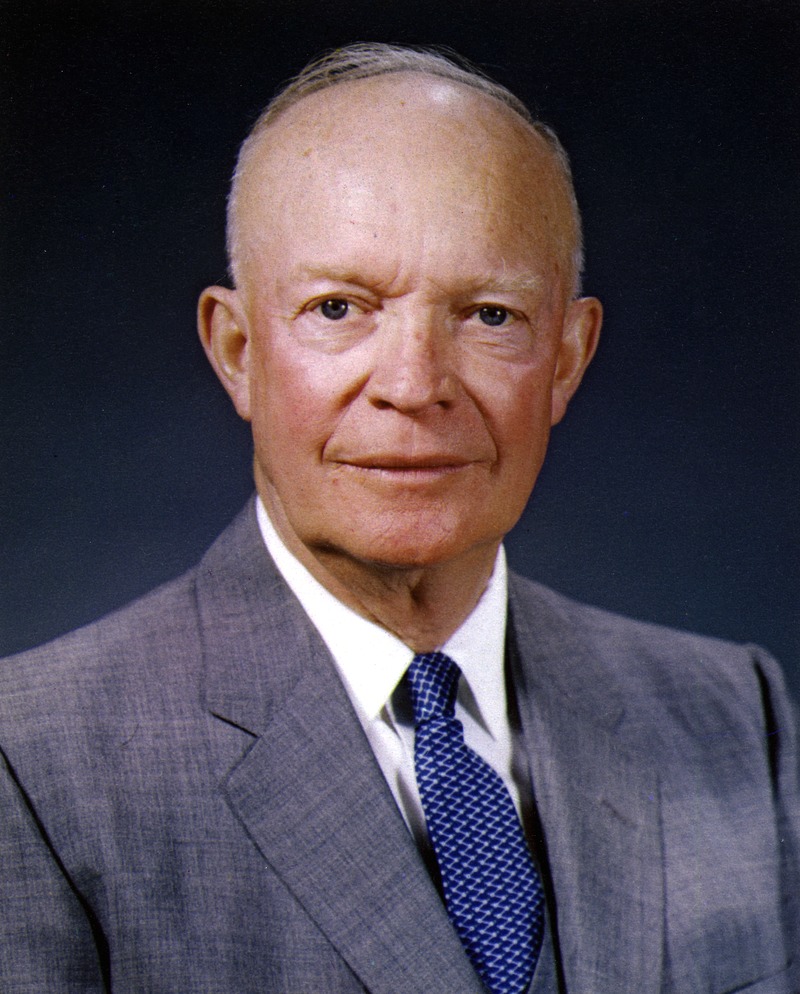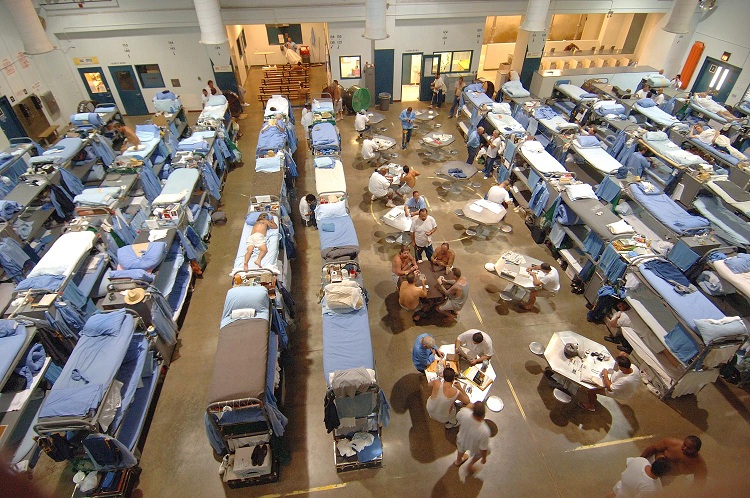- The first thing to understand is that when money and power are gods, ALL corporations must make constant profits: the latest economic doctrine - "maximizing shareholder value" - says that a corporation has no purpose but to make profits for its shareholders. This means that employer/employee loyalty and customer service/satisfaction are both irrelevant. Pensions and/or health benefits can and must be cut whenever it's expedient to the bottom line. Jobs must be outsourced to the lowest bidder, taxes must be avoided by offshoring whenever possible, nationalism/patriotism is a 20th century concept (i.e., ridiculous) and the fact that unemployed people do not buy much is ignored. The honest truth is the United States is no longer the preferred customer of most corporations, including Coca-Cola: China is king.
- When money and power are gods, everything must be privatized, i.e., put into the hands of corporations. At the same time, the corporations are no longer national, they are global, in order to maximize shareholder value (see above). Government - on any level - is an impediment to profit, so it must be made as small and neutralized as possible, except when needed to help the corporations (see below).
- NOTE: I am constantly amazed at how, in one of the most successful propaganda campaigns in history, our government (a democracy, where the government is "we, the people") has become more dangerous in many people's eyes than corporations such as Monsanto, R. J. Reynolds, Dow Chemical, and Smith & Wesson. At least with government, I can vote the bastards out: corporations, can't even be sued any more (see Legal Restrictions below).
- Corporate profits must be maintained, at all costs, including military. Eisenhower recognized the beginnings of this in his Military Industrial Complex Speech. Since the end of the Cold War, there has almost always been an economic rather than political reason why troops are sent where they are, why outrage is expressed over certain international incidents and not over others. (This is why, for example, the entire international community joined the United States to invade Iraq in 1990-91's First Gulf War, a/k/a the 710 War, but everyone stood on the sidelines and watched as 800,000 people were slaughtered in the Rwandan Genocide of 1994.) And many aspects of war - supplies, security, etc. - are now routinely privatized to corporations which make a hefty profit with almost no oversight, including Bechtel (which was accused of war profiteering), Halliburton, and Blackwater (which was brought before Congress in 2007 for "employee misdeeds," among other things).
- NOTE: In the run-up to the Iraq war, Halliburton was awarded a $7 billion contract for which 'unusually' only Halliburton was allowed to bid (Wikipedia - Halliburton) It might not have hurt that Dick Cheney had been Chairman and CEO from 1995-2000.
- The gun manufacturers and armament industries must make constant profits, which means sales must be constant, and so the NRA preaches the complete and total ownership of any firearm of any kind by anyone at any time. (Soon coming to your neighborhood: personal flamethrowers! Sadly, I'm not kidding.) That's why each new shooting must be propagandized in whatever way that will increase sales:
- there are crazy people out there with guns, buy more guns now;
- the terrorists are coming to kill you, buy more guns now;
- the government is coming to take away your guns, buy more on guns now.
- Also, to ensure constant profits for the weapons industry, our entertainment and news media must be saturated with ever-increasing levels of threats and violence both to keep the fear and anxiety at suitable levels and - very important, very underestimated - product placement. (Remember that every prop / weapon / outfit / drink you see on Criminal Minds, James Bond, the Bourne Identities, etc., is there in order to sell one to you.)
- NOTE 1: If you don't believe that violence in media has any effect on people's behavior, then why do corporations spend billions on advertising? If the constant barrage of news feeds, hour-long TV show, binge-watching television shows, and movies, or unlimited video games has no effect on our minds and behavior, then why should corporations pay billions for a 30-second ad spot? Why do politicians and super-PACs do the same? Are they all stupid?
- NOTE 2: If you don't believe that violence in media has increased, watch an episode of Gunsmoke on RetroTV some time, and note how seldom Matt Dillon (or even the bad guys) used a gun. Some day count the number of weapons on display in previews during the morning news. (The average child will see 8,000 murders on television before finishing elementary school: Link).
When money and power are gods, and corporations are their high priests, it has real world consequences. And one of those is that the poor - collectively and individually - are sinners, and must be punished by any means at the disposal of the powerful. The results are:
- NOTE 3: The quantity of violence not only has increased, but, as the public becomes more jaded, it has become more and more perverse. On the news, "When it bleeds, it leads!" Literally. As for entertainment, in the 1980s, Law and Order SVU was considered fairly hard-core, with story-lines of children being abused and murdered, women and children being raped, tortured, etc. Not any more. Criminal Minds, Dexter, Hannibal, and other shows upped the ante with on-screen cannibalism, eye-gougings, etc. On "Game of Thrones" human beings are being castrated and flayed alive. Live, to-the-death gladiatorial contests cannot be far behind. (But it's all in jest, they but do poison in jest, no harm in the world...)
Propaganda: The poor are "losers", "moochers", "lazy", "worthless", "stupid". Social Security and Medicare - both fully taxpayer funded, i.e., paid by us - are called "entitlements", which implies that they haven't been earned, but are something we moochers wrongly feel "entitled" to. (Damn straight I feel "entitled" to Social Security - I paid into it for 40 years!)
Political restrictions: Between gerrymandering, voting restrictions, and Citizens United, the powerful have done an excellent job of ensuring that the votes/interests/representation of the working class and poor are rendered irrelevant to the political process. My own congresspeople - John Thune, Mike Rounds, and Kristi Noem - respond to my e-mails and letters with form letters. I don't have the money to make them hear me.
Legal restrictions:
- Our right to sue corporations is being stripped away from us by "mandatory arbitration clauses" put in place by most health insurance plans, dealership or franchise agreements, billing agreements (think credit cards), and many, many, many other corporate contracts. These deny the right of the consumer, employee, or contractee to sue in favor of arbitration before an arbiter of the corporation's choosing, at your expense (think $200-$300 an hour). See Public Citizen Access - Mandatory Arbitration Clauses.
- Gag orders have become common as part of settlements with large corporations. See Fracking gag order.
- If you are poor and arrested, even if you are found innocent, in many states and counties, you will be charged with court costs, fines, and fees for your (hopefully short) stay in jail. In some counties, you will be charged for a public defender, despite the Miranda Law's assurance that one will be provided for you.
- The prison system - which has been privatized in many states - must make constant profits, and their contracts require full prisons, no matter what the level of crime actually is. Therefore any laws which decriminalize any drugs must be fought. Also, addiction, mental illness, and mental disability have been unofficially criminalized, because there's not enough money for state or federal mental health facilities and private mental health facilities are only for those with excellent health insurance.
 But fear counts above all. No one must ever question why - living in the richest, most privileged, most free society on earth, the "home of the free and the brave" - why they are so afraid, all the time, everywhere. And, why is the object of fear constantly changing? In Orwell's "1984" Oceania always at war, but the enemy kept switching from Eurasia to Eastasia. In my lifetime I have watched the enemy - the one who will destroy us at all costs - change from Communism to the Evil Empire (Soviet Russia)/China to Japan to the Axis of Evil (Iran/Iraq/North Korea) to Saddam Hussein to Osama bin Laden to Radical Islamic Terrorism, with a few stops along the way at black ghettos, hippies, drugs, black gangs, urban thugs, illegal immigrants, illegal immigrant children, legal refugees, and anyone wearing a turban. Not to mention polio, HIV, SARS, H1N1, Ebola, and Zika viruses.
But fear counts above all. No one must ever question why - living in the richest, most privileged, most free society on earth, the "home of the free and the brave" - why they are so afraid, all the time, everywhere. And, why is the object of fear constantly changing? In Orwell's "1984" Oceania always at war, but the enemy kept switching from Eurasia to Eastasia. In my lifetime I have watched the enemy - the one who will destroy us at all costs - change from Communism to the Evil Empire (Soviet Russia)/China to Japan to the Axis of Evil (Iran/Iraq/North Korea) to Saddam Hussein to Osama bin Laden to Radical Islamic Terrorism, with a few stops along the way at black ghettos, hippies, drugs, black gangs, urban thugs, illegal immigrants, illegal immigrant children, legal refugees, and anyone wearing a turban. Not to mention polio, HIV, SARS, H1N1, Ebola, and Zika viruses. - NOTE: So far, we're still here.
- Money and power are abstractions, fictions, a belief system rather than a reality, to which we sacrifice real human beings, not to mention real air, real water, real food, real life, daily.
- No matter how much money and power is worshiped, acquired, accumulated, fought for, praised, and sacrificed to, life will never be 100% safe, and 100% of all people will all still die naked and alone. Including the wealthiest of the 1%. The gods of money and power, the church of the corporation, the priests of politicians and lobbyists, the demi-gods of celebrity will not save any of us from that fate.






